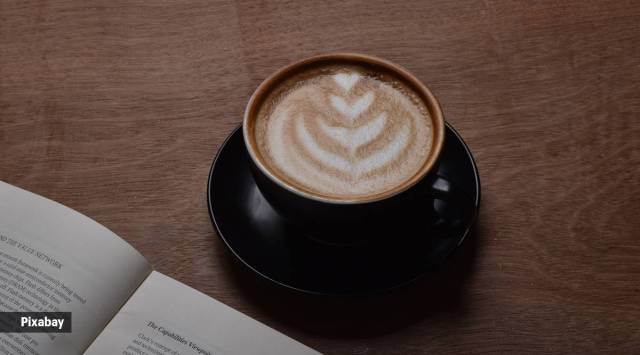Smell the coffee: It perks you up regardless of the caffeine
Smell the coffee: It perks you up regardless of the caffeine
A study from Portugal means that once the brain has been conditioned to a reflex, any sign related to that reflex or any stimulation related to that reflex can trigger the same changes in the brain,

The whiff of coffee can be as potent a mood uplifter as caffeine itself, according to a new study from Portugal. It says that caffeine and coffee both work on a part of the brain stem that makes us drowsy and keeps us in a restful state. That’s the reason why a cup of coffee or even its smell perks us up. The study, which was published in Frontiers in Behavioural Neuroscience, compared the effects of drinking coffee versus consuming caffeine.
“People typically say that they need to have coffee in the morning to get ready. We wanted to understand the brain mechanisms and functional connectivity pattern that would justify this claim,” said Nuno Sousa, one of the study’s authors and a professor at the University of Minho’s School of Medicine in Portugal. Altogether 47 people were scanned before drinking their morning cup of coffee, then again 30 minutes after they had a cup. The other group of 36 were simply given caffeine diluted in hot water and underwent the same types of MRI scans before and after they consumed the beverage. After scans, both groups reported decreased activity in a part of the brain that relaxes people. Which means the sight, smell or taste of coffee can be a stimulant regardless of the caffeine content.
So how does the smell of coffee and caffeine impact brain activity? Dr Praveen Gupta, Director and Unit Head, Neurology, Fortis Memorial Research Institute in Gurgaon says that it is more likely to be a stimulus-related reflex effect.
How does the smell of coffee change brain activity?
Interestingly, the study also showed that people who drank coffee, apart from feeling an energy rush, had stimulated activity in that part of the brain that works on short-term memory attention and focus. Strangely, caffeine did not impact these areas. This indicates that in regular coffee drinkers, the sight, smell and taste of coffee can trigger a reflex stimulation of the brain. It is like Pavlovian reflex which is the reaction of a dog at the sound of a bell indicating meal time. The dog would start salivating at the sound of the bell and keep salivating even if the food was not served. This means that once the brain has been conditioned to a reflex, any sign related to that reflex or any stimulation related to that reflex can trigger the same changes in the brain. Coffee and caffeine may have distinct effects on the brain due to variations in their preparation, heating and resulting chemical changes. These differences in chemical changes between coffee and caffeine can potentially lead to varying impacts on the brain. People form associations with particular sensory experiences over time, which in turn can influence their future reactions.
Can this also be considered a placebo effect?
It is unlikely to be a placebo effect but it is more likely to be a stimulus-related reflex effect which is seen in this experiment. Coffee is also a stimulant for the heart and a lot of coffee can trigger tachycardia, increased blood pressure and increased heart rate.
How much coffee can one drink in a day and who all should avoid it?
A person should not drink coffee more than two to three cups a day and should avoid drinking coffee beyond 7 pm or 8 pm because it can interfere with sleep. However, people who have high blood pressure and have a history of cardiac arrhythmias should avoid this beverage.

 Good Grow: The Marijuana Farm Founded by Akufo-Addo’s Daughters
Good Grow: The Marijuana Farm Founded by Akufo-Addo’s Daughters  National Food Suppliers for Free SHS set to picket at Education Ministry
National Food Suppliers for Free SHS set to picket at Education Ministry  Information Ministry justifies ¢151k paid to staff as Covid-19 risk allowance
Information Ministry justifies ¢151k paid to staff as Covid-19 risk allowance  I’ll help farmers with tractors to increase productivity – Bawumia promises
I’ll help farmers with tractors to increase productivity – Bawumia promises  CETAG meets national teaching council to conclude on strike
CETAG meets national teaching council to conclude on strike  Adom Kyei Duah cannot be the Jesus that Christians seek – Christian Council of Ghana
Adom Kyei Duah cannot be the Jesus that Christians seek – Christian Council of Ghana  Bawumia’s smartphone pledge misguided and visionless – Adongo
Bawumia’s smartphone pledge misguided and visionless – Adongo